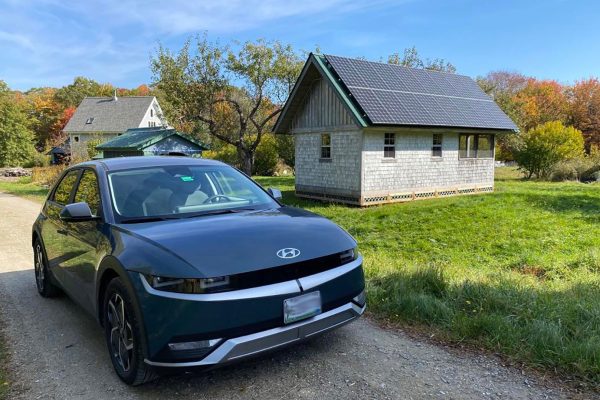It may come as a surprise that our utilities’ profits aren’t based on how the companies perform. A bill before the Maine Legislature would help correct that.
LD 2172 gives the Public Utilities Commission (PUC) the authority to use a suite of tools that help calibrate utility profits with performance. It also sets in motion a regulatory process to adopt reforms that can align utility incentives with the clean energy transition.
If LD 2172 becomes law, Maine would join 17 other states and the District of Columbia in adopting what policy-makers call performance-based regulation, or PBR. Behind this surge of interest is a widespread recognition that the conventional approach to utility regulation fails to motivate the kinds of investments, planning, and operational decisions we need to ensure an affordable, equitable, clean energy transition.
The Natural Resources Council of Maine’s clean energy experts worked with the bill’s sponsor and members of the Joint Committee on Energy, Utilities, and Technology to develop compromise language to advance the bill out of committee for votes in the House and Senate.

Electric car and solar panels, by Judy Berk
Electrifying our heating and transportation sectors and adding new home-grown sources of renewable energy to substitute expensive and polluting fossil-fuel generation will require an expansion of Maine’s transmission and distribution (T&D) system.
Traditional “cost of service” regulation provides utilities an opportunity to earn a return of 8-10% on capital investment. This authorized rate of return functions as the primary profit motivation of our regulated utilities—and is very poorly matched to the grid build-out we face today.
Instead of encouraging over-spending on costly infrastructure, we need to align utility incentives with innovative ways to save all ratepayers money.
In addition to more straightforward categories of performance like keeping the lights on, responding to outages, and providing customer service, PBR reforms can help guide utility behavior in other areas that support our vision for the future clean energy grid. These include:
- Load flexibility to make the most out of the grid infrastructure we have by shifting and shaping demand for electricity to low-use times, thereby delaying and defraying expensive or potentially unnecessary infrastructure upgrades.
- Market participation and customer empowerment to utilize customer-driven investments in new energy technologies like solar panels, battery storage, and programmable appliances so these assets can provide services to the grid, thereby shifting costs away from ratepayers.
- Innovative energy solutions through expert vetting, competition, and new partnerships.
PBR refers to a suite of regulatory tools and approaches, including things like decoupling, rate adjustment mechanisms, and service quality indices, many of which have been used in Maine for years to provide regulators with means of oversight and enforcement.
The PUC also has built a foundation more recently in implementing LD 1959 (PL 2022, ch. 702), a 2022 law that required regulators to establish minimum service standards in areas of basic utility functions, like reliability and storm response, with penalties imposed for poor performance. LD 2172 would build on this experience by expanding into areas that more directly support the clean energy transition.
In addition to providing regulators with broad authority to use performance-based tools, LD 2172 requires the PUC to host public proceedings every three years to take measured steps forward to evaluate and adopt reforms, with regular reporting back to the Legislature.
Through collaborative stakeholder meetings, the PUC will establish goals that serve Maine’s codified decarbonization requirements and consider standards and metrics that may be used to hold utilities accountable to those goals. The hope for these proceedings is to build capacity, trust, and understanding among parties, as we start gathering data and information to track progress. This transparency and accountability will be essential for a successful and equitable clean energy transition in Maine.
Shifting utility incentives to serve the flexible, decentralized, and participatory clean energy grid of the future won’t happen overnight. LD 2172 takes a cautious step forward for ensuring performance-based regulatory reforms will support our decarbonization requirements while benefiting ratepayers.
—Rebecca Schultz, NRCM Climate & Clean Energy Senior Advocate










Leave a Reply